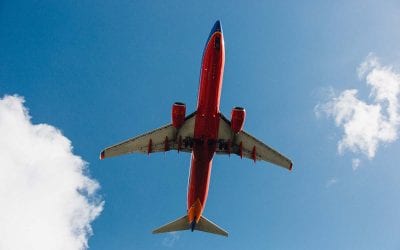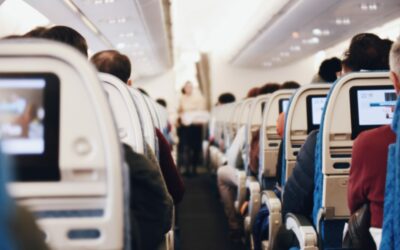It’s one of those unaskable questions in the travel industry, akin to challenging church dogma.
But Stan Levy dares to say it, and I dare to publish it: Why do they allow airline codesharing?
“What benefits are there for the traveler of these arrangements?” he wonders.
I’m struggling to find a compelling answer. Maybe you are, too.
Levy has a reason to challenge the sacred canon of the airline industry, which states that airline alliances are a “win-win” proposition for both airlines and loyal frequent fliers.
He recently booked a flight from Cleveland to Auckland, New Zealand, on United Airlines, an airline on which he’s earned elite status. But he didn’t fly on United. Because of the perplexing wonder of codesharing, the tickets were on Air Canada and Air New Zealand, he says.
“In both cases we learned to our regret that the perks that were obtained from United did not transfer, or worse, that weight allowances were less for our bags, or that privileges such as club access did not apply because we were not on a United ticket,” he says.
Ah, I can hear you defenders of the faith saying, “That’s because Levy wasn’t elite enough.”
Come on.
Codesharing is a hot issue in Washington now, with the latest Transportation Department rulemaking requiring improved disclosure of these airline alliances, which would avoid the surprise Levy experienced when he reserved his tickets. If the rules are put in place after the 90-day comment period, it would be far more difficult for United to pretend that it’s flying a passenger all the way from Ohio to New Zealand on its planes, and leaving them with the impression that they’ll enjoy all the “benefits” of the airline.
Actually, from where I’m sitting, there are zero benefits to these alliances. Sure, they allow a small group of dishonest travel hackers to game the system, and yes, there are some limited reciprocal amenities for other passengers.
But think about it. The airline gets to claim it is flying somewhere that it isn’t. It’s getting a government license to not compete with some of the other airlines flying on that route.
How is not competing good for passengers? Someone care to enlighten me?
To Levy and others who have contacted me, codesharing also seems like a bait-and-switch technique. Because the benefits that are offered inevitably don’t turn up as promised. The luggage allowance is a little less, and you have to pay for a bag that should be included in the fare. The promised mileage doesn’t materialize because it was a “codeshare” flight.
“American and United tout how important these alliances are,” says Levy. “My wife and I, however, fail to see any value. On some trips we even have had to argue for the mileage on the code-shared airline.”
He’s lucky. Some codeshare flights don’t include miles at all, although they fail to inform passengers of it upfront. It’s yet another “benefit” of being part of an alliance. You get to assume you have something that you don’t.
I have a hard time getting worked up over loyalty program “benefits” because I believe everyone deserves to be treated well on a flight. The seats should offer a humane amount of legroom and width; the meals should be edible; the air breathable.
Yeah, call me a socialist. I’ve been called worse.
My big concern is the tens of billions of dollars of our collective money the airlines have pocketed by colluding with each other instead of competing. They’ve managed to cover up their illegal activity — yes, it’s illegal — with clever marketing-speak and by paying off a small army of blogging apologists.
Stan, make no mistake. Airline alliances only benefit airlines.
[poll id=”12″]



